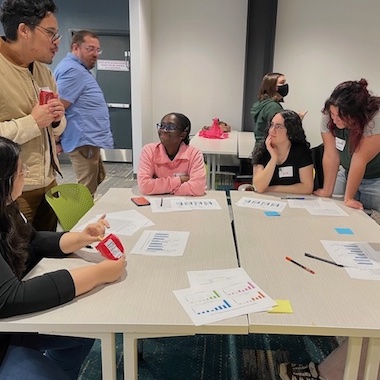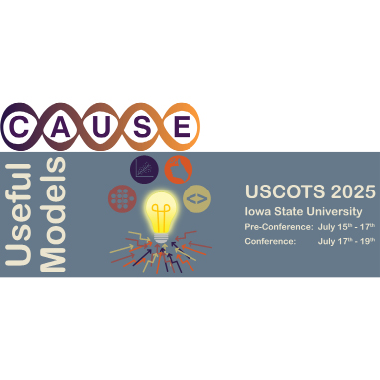MSU Presenting Virtually at PME-NA
Several MSU faculty and graduate students with math ed interests are presenting virtually at the 42nd Annual Meeting of the North American Chapter of the International Group for the Psychology of Mathematics Education (PME-NA 42). Those presenting include: Kristen Bieda, David Bowers, Sunghwan Byun, Jonathan Gregg, Beth Herbel-Eisenmann, Brent Jackson, Rileigh Luczak, Sheila Orr, Melvin Peralta, Katie Rich, Brady Tyburski, and Kevin Voogt.
Due to the COVID-19 pandemic, the conference was postponed to 2021, with virtual events to be held May 27 to June 5 (with a break to allow travel to the venue) and in-person/hybrid events to be held June 2-6, 2021. The in-person events are in Mazatlán, Sinaloa, Mexico.
The theme of the conference this year is Across cultures. The conference planners noted that “a way to promote the exchange and enrichment of mathematics education research is to look at its manifestations across different cultures, places and contexts.”
The organizers are looking forward “to an academic exchange that will reflect the ample diversity of ways of teaching and learning of mathematics, and of the tools and communities involved in mathematics education; as well as explore how the differences in cultures imply a need to consider how research results can be taken into account in varying contexts.”
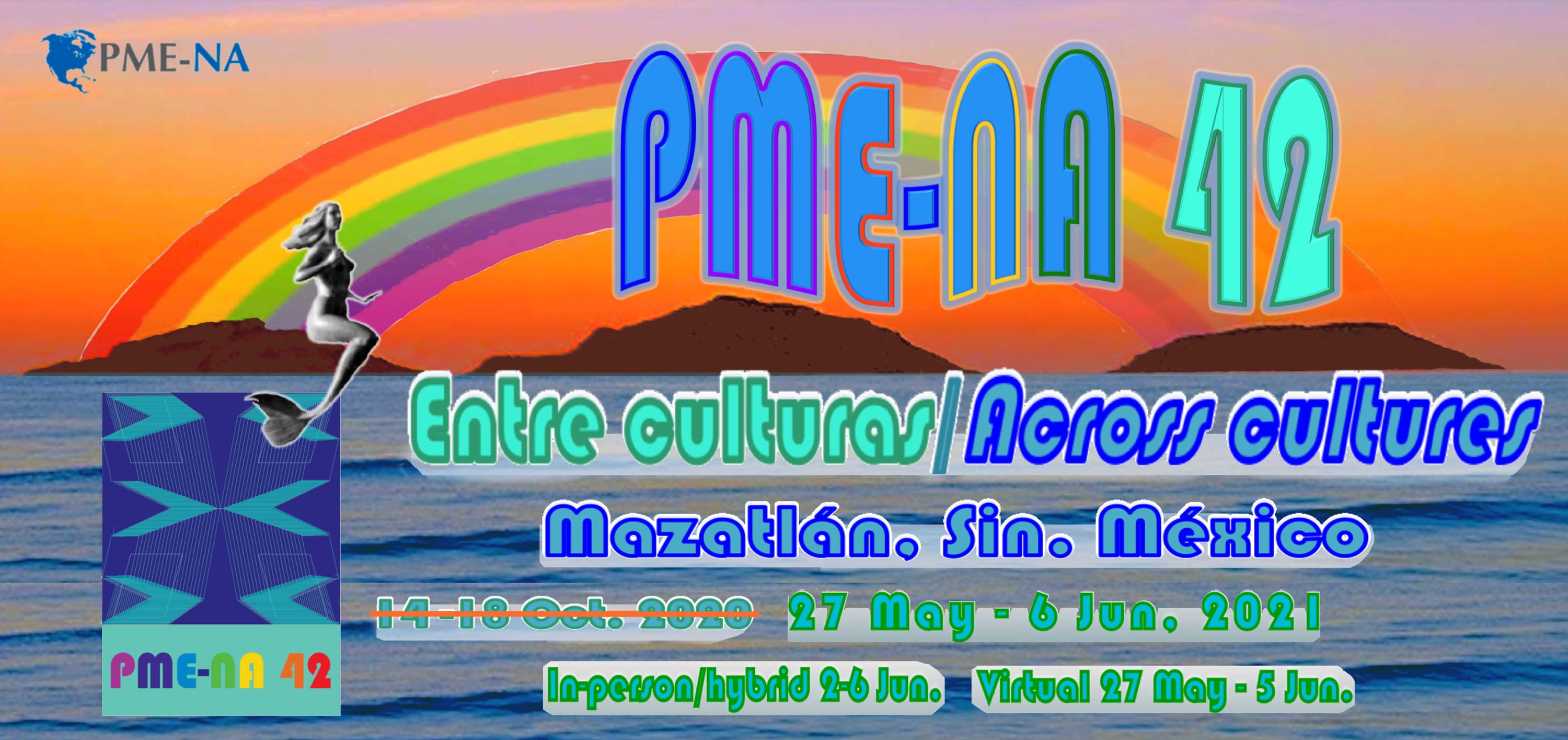
Comments from several of the graduate students about their presentations are included below.
 David Bowers noted, “In conjunction with coauthor Brian Lawler, I will be presenting a Brief Research
Report titled Reconciling Tensions in Equity Discourse through an Anti-Hierarchical (Anarchist)
Theory of Action. This was the first of a small sequence of publications I've drafted in the last
few years that began laying the foundation for my dissertation, itself focused on
the union of Mathematics Education and the sociopolitical philosophy of Anarchism.
In this particular text, we focused on surfacing the undercurrent of anarchism that
already exists and tacitly aligns a wealth of equity work, as well as on positing
the value that we might find in making this undercurrent an explicit component of
our research. In our presentation, we will put that in conversation with work we've
done in the meantime which further articulates this value and begins surfacing differences
(rather than similarities) in how this explicit focus might shape research practice
as through our choice of methodologies.” Their presentation will be on Saturday afternoon,
June 5th.
David Bowers noted, “In conjunction with coauthor Brian Lawler, I will be presenting a Brief Research
Report titled Reconciling Tensions in Equity Discourse through an Anti-Hierarchical (Anarchist)
Theory of Action. This was the first of a small sequence of publications I've drafted in the last
few years that began laying the foundation for my dissertation, itself focused on
the union of Mathematics Education and the sociopolitical philosophy of Anarchism.
In this particular text, we focused on surfacing the undercurrent of anarchism that
already exists and tacitly aligns a wealth of equity work, as well as on positing
the value that we might find in making this undercurrent an explicit component of
our research. In our presentation, we will put that in conversation with work we've
done in the meantime which further articulates this value and begins surfacing differences
(rather than similarities) in how this explicit focus might shape research practice
as through our choice of methodologies.” Their presentation will be on Saturday afternoon,
June 5th.
 Sunghwan Byun commented, “Melvin and I looked into the data from the MDISC project under Beth’s [Beth Herbel-Eisenmann's] supervision related to authority patterns
during whole-class discussions. One of the teacher’s discourse patterns related to
authority stood out to us. We often think in a single-dimensional way with authority
issues; that is to say, teachers are more or less authoritative during mathematics
discussions. In this teacher’s classroom, however, we found that the teacher asserted
one kind of authority (deontic authority) to share another kind of authority (epistemic
authority). In our presentation, we will describe the analysis in detail and talk
about how this more nuanced understanding of authority may shape mathematics teacher
education regarding sharing authority with students during mathematics discussions.”
Their presentation, titled A case of shared authority during a student demonstration in a mathematics classroom,
will be on Saturday, May 29th.
Sunghwan Byun commented, “Melvin and I looked into the data from the MDISC project under Beth’s [Beth Herbel-Eisenmann's] supervision related to authority patterns
during whole-class discussions. One of the teacher’s discourse patterns related to
authority stood out to us. We often think in a single-dimensional way with authority
issues; that is to say, teachers are more or less authoritative during mathematics
discussions. In this teacher’s classroom, however, we found that the teacher asserted
one kind of authority (deontic authority) to share another kind of authority (epistemic
authority). In our presentation, we will describe the analysis in detail and talk
about how this more nuanced understanding of authority may shape mathematics teacher
education regarding sharing authority with students during mathematics discussions.”
Their presentation, titled A case of shared authority during a student demonstration in a mathematics classroom,
will be on Saturday, May 29th.
 Brent Jackson will be presenting with Byungeun Pak and Jillian Cavanna, two alumni of MSU doctoral
programs, on their research about beginning elementary teachers’ use of number talks.
"This research looks at number talks from beginning teachers across four teacher preparation
programs over a three year period," Brent commented. "Through various methods we analyze
the extent to which number talks help beginning teachers to enact ambitious and/or
equitable mathematics instruction." Brent will also be facilitating the gender and
sexuality working group which runs over several days.
Brent Jackson will be presenting with Byungeun Pak and Jillian Cavanna, two alumni of MSU doctoral
programs, on their research about beginning elementary teachers’ use of number talks.
"This research looks at number talks from beginning teachers across four teacher preparation
programs over a three year period," Brent commented. "Through various methods we analyze
the extent to which number talks help beginning teachers to enact ambitious and/or
equitable mathematics instruction." Brent will also be facilitating the gender and
sexuality working group which runs over several days.
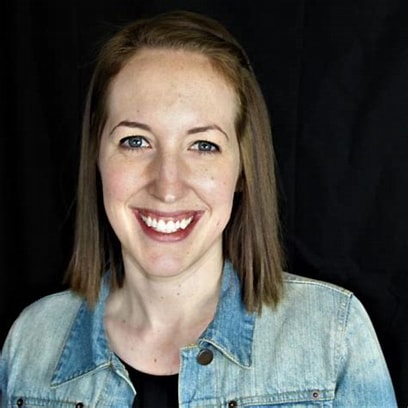 Sheila Orr remarked, “Kristen Bieda and I are presenting our analysis which has come out of
the UTEMPT project. We are sharing our findings on how pre-service teachers (PSTs) utilized questioning
sequences during teaching in the university teaching experience (UTE). Additionally,
we looked at how the questions in each sequence aligned with the questions the PSTs
had written in their lesson plans.” Their presentation, titled Preparing to Elicit Student Thinking: Supporting PST Questioning in a University Teaching
Experience, will be on Sunday, May 30th.
Sheila Orr remarked, “Kristen Bieda and I are presenting our analysis which has come out of
the UTEMPT project. We are sharing our findings on how pre-service teachers (PSTs) utilized questioning
sequences during teaching in the university teaching experience (UTE). Additionally,
we looked at how the questions in each sequence aligned with the questions the PSTs
had written in their lesson plans.” Their presentation, titled Preparing to Elicit Student Thinking: Supporting PST Questioning in a University Teaching
Experience, will be on Sunday, May 30th.
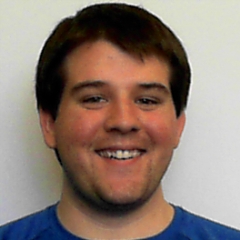 Brady Tyburski will be presenting on collaborative work he has been doing with James Drimalla, a
graduate student at the University of Georgia, along with the research team from the
University of Georgia and Portland State University. He commented, "Our talk is about
reflecting on the limitations of graphical tasks used in covariational reasoning research.
We call on other researchers to be more explicit about their methods for using graphs
to make research in this area more accessible to newcomers designing their own studies."
Brady continued, "I'm proud of this work because it's an example of how beginning
graduate students (such as James and I) can leverage their unique perspective as novices to
share valuable insights that advance the goals of a research community and welcome
in new researchers." Their presentation An Invitation to Conversation: Addressing the Limitations of Graphical Tasks for Assessing
Covariational Reasoning is on Friday, June 4th.
Brady Tyburski will be presenting on collaborative work he has been doing with James Drimalla, a
graduate student at the University of Georgia, along with the research team from the
University of Georgia and Portland State University. He commented, "Our talk is about
reflecting on the limitations of graphical tasks used in covariational reasoning research.
We call on other researchers to be more explicit about their methods for using graphs
to make research in this area more accessible to newcomers designing their own studies."
Brady continued, "I'm proud of this work because it's an example of how beginning
graduate students (such as James and I) can leverage their unique perspective as novices to
share valuable insights that advance the goals of a research community and welcome
in new researchers." Their presentation An Invitation to Conversation: Addressing the Limitations of Graphical Tasks for Assessing
Covariational Reasoning is on Friday, June 4th.
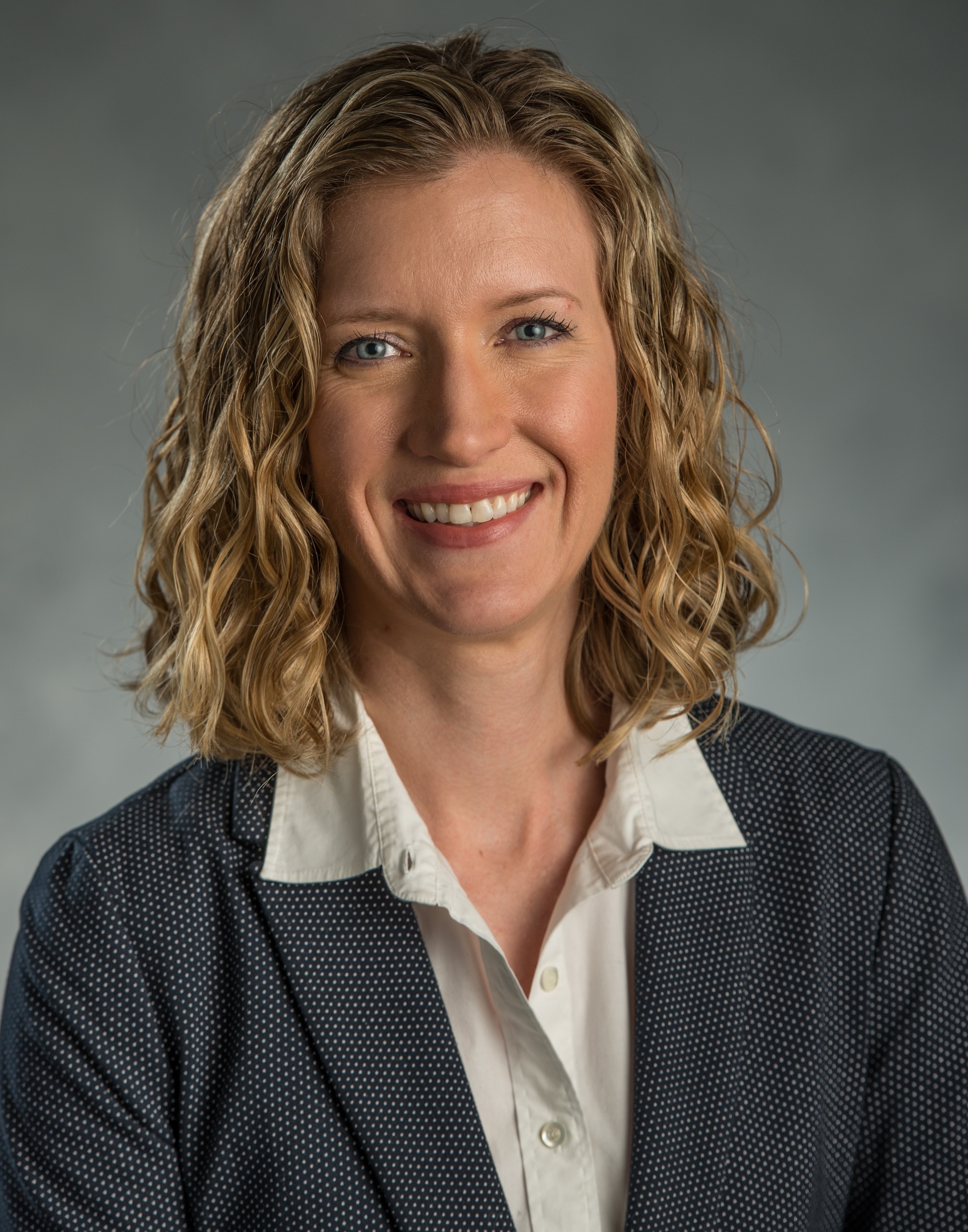 Kristen Bieda said, "In addition to what Sheila shared, I am co-chairing a research colloquium
called Conceptions and Consequences of What We Call Argumentation, Justification and Proof with colleague Dr. Michelle Cirillo from University of Delaware. The colloquium will
meet across three sessions. The focus of the colloquium's work will be to consider
ideas from a forthcoming book (which I co-edited) entitled "Conceptions and Consequences
of Mathematical Argumentation, Justification, and Proof" to be published by Springer
in Fall 2021." She continued, "We plan to discuss data sets from elementary, middle
and tertiary classrooms with a focus on how utilizing particular definitions of argumentation,
justification and proof shape the conclusions we make about the teaching and learning
represented in those data sets. There will be presentations each day from featured
authors from the book, including Drs. AnnaMarie Conner, Carlos Nicholas Gomez, Kristin
Lesseig, David Plaxco, Eva Thanheiser and Candace Walkington."
Kristen Bieda said, "In addition to what Sheila shared, I am co-chairing a research colloquium
called Conceptions and Consequences of What We Call Argumentation, Justification and Proof with colleague Dr. Michelle Cirillo from University of Delaware. The colloquium will
meet across three sessions. The focus of the colloquium's work will be to consider
ideas from a forthcoming book (which I co-edited) entitled "Conceptions and Consequences
of Mathematical Argumentation, Justification, and Proof" to be published by Springer
in Fall 2021." She continued, "We plan to discuss data sets from elementary, middle
and tertiary classrooms with a focus on how utilizing particular definitions of argumentation,
justification and proof shape the conclusions we make about the teaching and learning
represented in those data sets. There will be presentations each day from featured
authors from the book, including Drs. AnnaMarie Conner, Carlos Nicholas Gomez, Kristin
Lesseig, David Plaxco, Eva Thanheiser and Candace Walkington."
The list of MSU Presentations for the two weeks appears below.
MSU Presentations
Thursday, May 27
9:20 to 10:50am MDT (11:20am to 12:50pm EDT), Virtual Zoom Rooms, VR 4
(RR) Between the Boundaries of Knowledge: Theorizing an Etic-Emic Approach to Mathematics Education - Lee Melvin Madayag Peralta, Michigan State University
Thursday, May 27
9:20 to 10:50am MDT (11:20am to 12:50pm EDT), Virtual Zoom Rooms, VR 3
(BRR) Computational Thinking Practices as a Frame for Teacher Engagement with Curriculum Materials - Kathryn Rich, Michigan State University
Working Group:
Thursday, May 27, 11:00am to 12:30pm MDT (1:00 to 2:30pm EDT), Virtual Zoom Rooms, VR 4
Saturday, May 29, 10:35am to 12:05pm MDT (12:35 to 2:05pm EDT), Virtual Zoom Rooms, VR 4
Thursday, June 3, 1:30 to 3:00pm MDT (3:30 to 5:00pm EDT), ElCid Castilla /Virtual Zoom Rooms, Meeting Room 4 / VR 4
Working Group on Gender and Sexuality in Mathematics Education: Informing Methodology with Theory - Katrina Piatek-Jimenez, Central Michigan University; Brent Jackson, Michigan State University; Ana Dias, Central Michigan University; Weverton Ataide Pinheiro, Indiana University Bloomington; Harryson Goncalves, State University of São Paulo; Jennifer Hall, Monash University; Elizabeth Kersey, University of Northern Colorado; Angie Hodge, Northern Arizona University
Research Colloquia 1:
Thursday, May 27, 11:00am to 12:30pm MDT (1:00 to 2:30pm EDT), Virtual Zoom Rooms, VR 2
Saturday, May 29, 10:35am to 12:05pm MDT (12:35 to 2:05pm EDT), Virtual Zoom Rooms, VR 2
Thursday, June 3, 1:30 to 3:00pm MDT (3:30 to 5:00pm EDT), ElCid Castilla /Virtual Zoom Rooms, Meeting Room 2 / VR2
Conceptions and Consequences of What We Call Argumentation, Justification, and Proof - Michelle Cirillo, University of Delaware; Kristen N Bieda, Michigan State University
Thursday, May 27
1:30 to 2:30pm MDT (3:30 to 4:30pm EDT), Virtual Zoom Rooms, VR 10
Pre-Service Teacher Ed Posters S1 (Virtual)
The XYZ Model: Animating Pre-Service Teachers' Visions for Students Engagement
Jonathan Gregg, Michigan State University; Raymond LaRochelle, University of Delaware; Azaria Cunningham, The Pennsylvania State University; Seonmi Do, Pennsylvania State University; Kristen N Bieda, Michigan State University; Fran Arbaugh, The Pennsylvania State University
Thursday, May 27
1:30 to 2:30pm MDT (3:30 to 4:30pm EDT), Virtual Zoom Rooms, VR 13
Student Learning Virtual Posters session 02
Adolescents' Mathematics Identities in a Math Circle - Rileigh Luczak, Michigan State University
Thursday, May 27
1:30 to 2:30pm MDT (3:30 to 4:30pm EDT), Virtual Zoom Rooms, VR 3
Equity Posters S1 (Virtual)
MIM: Mathematics Education Responsive to Diversity: A Norwegian, Canadian and American Research Collaboration - Annica Andersson, University of Southeastern Norway; David Wagner, University of New Brunswick; Beth Herbel-Eisenmann, Michigan State University; Hilja Lisa Huja, UiT The Arctic University of Norway
Friday, May 28
12:40 to 1:40pm MDT (2:40 to 3:40pm EDT), Virtual Zoom Rooms, VR 15
Teaching & Classroom Practice Posters S2 (Virtual)
New Teachers' Equitable And Ambitious Number Talks Byungeun Pak, Michigan State University; Brent Jackson, Michigan State University; Jillian M Cavanna, University of Hartford
Exploring the Enactment of the Classical Education Movement Jonathan Gregg, Michigan State University
Saturday, May 29
8:55 to 10:25am MDT (10:55am to 12:25pm EDT), Virtual Zoom Rooms, VR 14
Teaching & Classroom Practice RR S6 (Virtual)
(RR) A case of shared authority during a student demonstration in a mathematics classroom - Sunghwan Byun, Michigan State University; Lee Melvin Madayag Peralta, Michigan State University; Beth Herbel-Eisenmann, National Science Foundation
Sunday, May 30
8:55 to 10:25am MDT (10:55am to 12:25pm EDT), Place: Virtual Zoom Rooms, VR 10
(BRR) Real-Time Coaching with Secondary Mathematics Pre-service Teachers: The Practices of Mathematics Teacher Educators
Fran Arbaugh, The Pennsylvania State University; Seonmi Do, Pennsylvania State University; Azaria Cunningham, The Pennsylvania State University; Kevin Voogt, Michigan State University; Raymond LaRochelle, University of Delaware; Michelle Cirillo, University of Delaware; Kristen N Bieda, Michigan State University
(BRR) Preparing to Elicit Student Thinking: Supporting PST Questioning in a University Teaching Experience
Sheila Orr, Michigan State University; Kristen N Bieda, Michigan State University
Zoom Host: Kristen Bieda
Friday, June 4
8:00 to 9:30am MDT (10:00 to 11:30am EDT), Virtual Zoom Rooms, VR 15
(RR) An Invitation to Conversation: Addressing the Limitations of Graphical Tasks for Assessing Covariational Reasoning - James Drimalla, University of Georgia; Brady A Tyburski, Michigan State University; Cameron Byerley, Colorado State University; Steven Boyce, Portland State University; Jeffrey Grabhorn, Portland State University; Christopher Orlando Roman, Portland State University; Kevin Moore, University of Georgia
Saturday, June 5
10:45am to 1:00pm MDT (12:45 to 3:00pm EDT), ElCid Castilla /Virtual Zoom Rooms, Meeting Room 4 / VR 4
(BRR) Reconciling Tensions in Equity Discourse Through an Anti-Hierarchical (Anarchist) Theory of Action - David Matthew Bowers, Michigan State University; Brian R Lawler, Kennesaw State University
